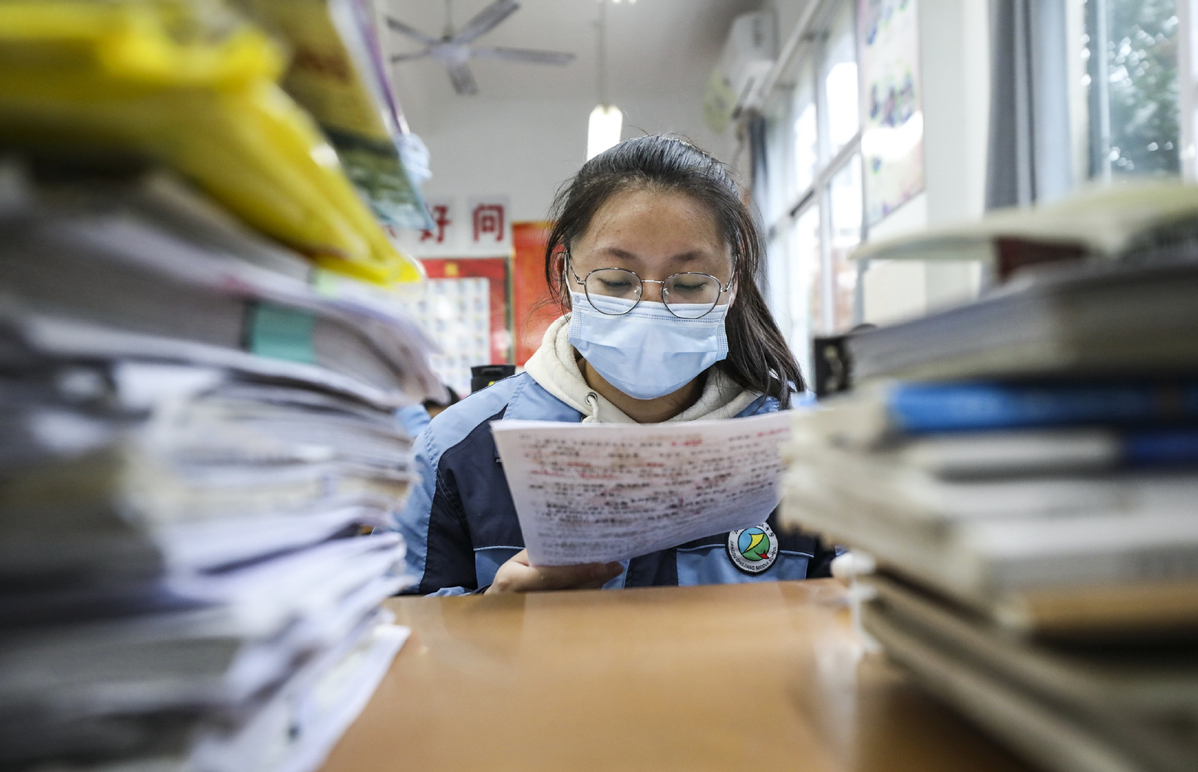Virus protection in place for gaokao
By Du Juan | China Daily | Updated: 2020-07-06 07:26

Over 49,000 candidates in Beijing will take the national college entrance exam, or gaokao, which begins on Tuesday, the largest scale gathering in the capital since the first locally confirmed COVID-19 case of an outbreak emerged on June 11.
"It's a big challenge (for authorities and students)," Beijing Education Commission spokesman Li Yi said recently at a COVID-19 epidemic control and prevention conference.
As scheduled, 49,225 students in Beijing will take the exam spread over 2,867 examination rooms and 132 schools starting Tuesday morning.
The municipal government has asked education departments at all levels to make detailed plans for organizing the exam with COVID-19 monitoring and emergency response procedures in place during the four days of the exam.
Li said on Friday that the schools holding the exams have everything ready.
He said they will all be disinfected before the exam and no central air-conditioning will be used in exam rooms to prevent spreading the virus.
"All students will be required to wear masks the whole time during the examination," Li said.
"All staff members for the exams have received nucleic acid tests, but students will not be required to do so in order to reduce the risk of cross-infection."
To help the staff be more familiar with the procedure, Fengtai No 12 Middle School held an exam drill on Friday.
Unlike in previous years, there will be an area for checking people's temperatures, a temporary medical observation area, spare exam rooms and disinfection facilities at the school.
Jiang Yanfu, head of the school's main campus, said there were 36 exam rooms with 20 students taking the exam per room.
Preparations
"We have prepared three spare exam rooms," he said. "Students' temperatures will be taken before they enter the campus. If someone's temperature is abnormal, the student will be brought to another location to again have their temperature taken, and psychology teachers will be on standby there to help ease students' nerves."
Tables with disinfection items, masks and tissues have already been prepared outside each exam room. The spare exam rooms to be used for emergencies-each will hold nine students at most-are equipped with ultraviolet ray disinfection devices. Exam monitors in those rooms will wear protective suits and glasses, Jiang said.
To create a quiet environment for the exam, construction sites within 500 meters of the schools will suspend work during daytime and some buses will adjust their routes to avoid passing schools during exam hours.
Some companies, such as navigation service provider AutoNavi, will provide free rides for students taking the exam who make reservations.
Students in centralized quarantine for medical observation will take the exams alone in the rooms. Local governments will provide private transportation for those students to prevent infection.
"Parents and schools should pay more attention to students' mental health now, since they have been through a lot in the first half of this year," Li added.
Graduating students had to study at home for months due to the epidemic in February. A few weeks after they returned to campus, a new cluster of infections sprang up in Beijing, which forced them to return to studying at home until the exam.
A parent surnamed Fang whose son is a graduating student at Fengtai No 2 Middle School, said the teachers have been monitoring the student's health every day and providing psychological guidance during his home study, which is very warm.
"I hope my son will be able to approach the exam with calm and do his best at it," Fang said. "In this special time, he would not only gain the rewards for his hard work for college, but also beneficial experience for his life."
























